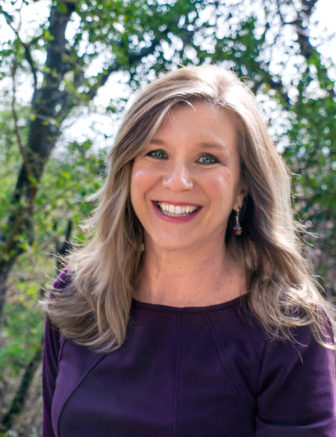
Artem Varnitsin/Shutterstock
.
Youth in foster care have educational aspirations much like youth who have not been in care, with 70-80% of foster youth reporting that they want to go to college. However, despite their ambition, foster care alumni are much less likely to attend college and if they do attend, are less likely to graduate compared to their peers who were not in foster care.
Much of the research surrounding foster youth and higher education aims to identify the most common obstacles to success. These studies reveal that foster youths’ higher education goals are often thwarted by inadequate academic preparation, mental health problems and a lack of financial resources.
Federal, state and local initiatives have been developed to address these barriers. Consequently, foster youth have benefited from legislation such as the federal Chafee Foster Care Independence Act, tuition and fee waivers, and extended foster care. In addition, there is a movement to create support programs for former foster youth on college campuses. These programs often provide much needed instrumental assistance and social support.

Toni Watt
At Texas State University, we developed a campus support program for foster care alumni called FACES (Foster Alumni Creating Educational Success). We conducted quantitative and qualitative research with students who had been in foster care in order to help us design and evaluate this new program. While we learned about the different types of help that foster care alumni (FCA) might need (e.g. mentoring, tutoring, break housing, a book lending library), we also learned about the importance of program positioning. More specifically, we learned about the value of a strengths perspective.
The strengths perspective emerged from the field of social work. Dennis Saleebey argued that social work had become entrenched in a worldview that focused on deficits, dysfunction and pathology. In approaching clients with a clear bias toward repairing limitations, social workers were missing an opportunity to define and utilize their strengths. The term “strengths perspective” is unique to social work, but similar concepts have emerged in other disciplines.
For example, in sociology, William Isaac Thomas argued that if individuals “define situations to be real, they will be real in their consequences.” This no doubt influenced Robert Merton, who later coined the term the “self-fulfilling prophecy,” and Howard Becker, who developed labeling theory. Each of these scholars theorized that the information we convey to others shapes their sense of self, which, in turn, influences their behavior. These theories have been empirically validated.
Finally, in the field of medicine, it is standard practice to test new treatments with experimental designs that include an intervention, control and a placebo group, because what the patient thinks they are getting plays a powerful role in health and healing. In short, time and time again we learn that what people believe matters, especially what they believe about themselves.
Using the strengths framework
The strengths perspective appears particularly appropriate for the foster care alumni population. Foster youth are not responsible for their abuse/neglect and the state’s decision regarding removal and placement. Yet they often experience stigma and labeling as “damaged goods,” with few believing in their potential.
In our research we found that this directly affected their views, as several stated that they thought they were not “college material.” Given these experiences, it is not difficult to argue that foster care alumni deserve to be approached as strong, capable survivors who should not be defined by the deficits of their pasts.
Thus, in our campus support program, we chose to use a strengths framework as a foundation for all our strategies and activities. For example, program staff are trained in the strengths perspective, the organization is presented as a way of celebrating the success of getting to college, FCA are given much control over the program design and decisions involving them, accomplishments big and small are celebrated in an awards banquet and Facebook page, and FACES students are asked to be leaders, to help with campus tours of youth currently in care and of under-represented students.
But more generally, the program mission involves a) promoting positive identities as survivors, b) respecting autonomy and c) mobilizing assets of resilience and community. We found that these issues were critically important to the FCA on our campus and that they responded much more positively to program services when they were guided by these principles. For example, students offered the following comments about the FACES program:
“I spent my whole high school career trying not to be ‘foster care.’ So I was like, why are they still bothering me? How did they know I was foster care at college?! Then I met everyone and learned that FACES is more about celebrating us. Everyone was so talkative and friendly. I want to be involved now.”
“It’s all negative. All the information for foster kids is negative. Everything that is in the news is negative. There’s nothing positive that you can see or hear regarding foster care. It [FACES] is counteracting. You are putting us out there in a positive light.”
And when strategies were employed that didn’t reflect these values, students expressed concerns. For example, we initially assigned each former foster youth a mentor, without asking them if they wanted one. Consequently, students were concerned about, and resisted, services that they had no say in:
“The only thing is, do we have a choice, that would relieve a lot of tension. That’s kind of case-worker-y. It feels like, oh no, I’m assigned someone to work with me now. I think we need to alleviate that because we’re real touchy about stuff like that.”
Equal potential
In our research, we saw that students appreciated the strengths framework. They saw it as something above and beyond traditional higher education retention models, and diametrically opposed to their previous experiences with the foster care system. In addition, as we saw their unique qualities; their intelligence, humor, perseverance and empathy for others, we began to understand that they have many talents that should be cultivated and celebrated.
And when we analyzed student outcomes, we found that the FACES students had graduation rates on par with the general student population. At that point, we finally understood their potential. To be clear, the FACES students have struggles, with academics, finances, mental health and a host of other issues. However, we learned the importance of not defining them in these narrowest of terms but as whole people, with problems and joys, deficits and assets, like anyone else. We learned it is important for former foster youth to also see themselves in this more nuanced way.
We published our research on the potential benefit of using a strengths perspective to frame a campus support program. Our findings led us to ask additional questions: What if everyone truly believed that foster youth were “college material” and that they could succeed in higher education? How might our work change? Would legislators in the states without tuition waivers and/or extended care be more inclined to adopt these policies? Would caseworkers, teachers and foster parents be more likely to encourage youth to pursue a college degree and help them navigate that process? Would researchers, like myself, conduct research, not only on risk factors for dropout, but also on the unique positive qualities that emerge from foster youths’ adverse experiences?
A broadly disseminated statistic is that only 2% of foster youth obtain a college degree. This figure was sufficiently low as to motivate policymakers, practitioners and advocates to do more. To that end, it has been beneficial to share this estimate, and to share it widely.
However, the narrative that few succeed runs the risk of being internalized and perpetuated. It is important to report aggregate data on foster youth outcomes, even if they are poor. However, we should also share information about the many capable and resilient youth who, with the power of belief and a little extra support, are creating a new story.
Toni Watt is a professor of sociology at Texas State University. Her research is both academic and applied and focuses on improving outcomes for children and youth who have experienced foster care.





























